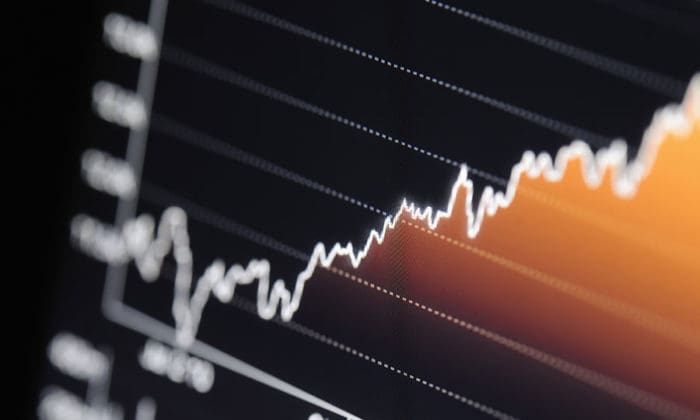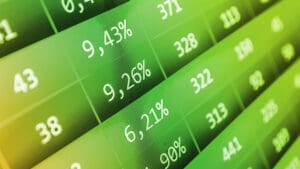I have become much more popular over the past few weeks, at least among financial reporters. While I would like to attribute this to my innate wit and charm, it is really because I have the type of trading and market making experience that can help them make sense of the consequences of the recent popularity of options, particularly the popularity of call options among retail investors.
Seemingly at once, retail investors became enamored with call options on highflying technology stocks. It is good that a wider range of clientele is learning about and utilizing listed equity options, but the pace of that adoption and the conditions under which it occurred caused disruption to options prices and markets as a whole. Any markets that are exposed to disruptions are primed for volatility, and that volatility manifested itself over the prior two weeks.
Just before the markets lurched lower, I published this piece about how the skewed prices of certain options classes were displaying a potentially unsustainable preponderance of greed over fear. It seems obvious that increased demand for something, in this case call options, would push up prices for that item. What is less clear, and what I hope to explain here, are the mechanics that underlie those price increases.
Let’s say a trader starts out with no positions, and believes that the fair value of an option is $2. He will post a two-sided market with $2 as the midpoint, say 1.90-2.10. If someone lifts his offer at $2.10, his next posting would likely be $1.95-$2.15. If someone hits his $1.95 bid, the market would probably revert to $1.90-$2.10. This is the ideal situation for a market maker, selling on the offer then buying back on the bid and locking in a profit with no residual exposure. But let’s say that the second customer is a buyer. In that case, he would probably go to a $2-$2.20 market. If the buying is relatively tame, and the market maker is finding it easy to hedge his risks, the price rises will be moderate. If the market maker sees an unrelenting wave of buying, however, he has no choice but to raise his offer aggressively. He will also likely widen his spread, say to $2-$2.50. This is because he is unlikely to want to lock in a loss on his sales by raising his bid above those sale prices, though bid prices will rise when a disciplined market maker will ultimately acknowledges when it is safer to lock in a loss than to ride a bad position.
A market maker’s defenses are relatively limited. They are generally some combination of:
- Hedge
- Widen spreads
- Reduce sizes
If it becomes difficult to professionals to hedge, as we saw in August on the upside and in March on the downside, they have to widen their quotes and shrink their posted sizes. This is why liquidity can dry up in volatile markets, as I alluded to in this video recorded during late February’s chaos. And remember, it’s common to think only of delta hedging (with stock and other options), but the market maker needs to hedge several other risks as well, such as volatility, decay, and others (aka “All the Greeks”, since those exposures are referred to by Greek letters). So if there is excessive demand – either from retail or institutions – market makers have no choice but to raise prices quickly and aggressively.
Bear in mind that many new investors moved to investing from sports gambling. The risk/reward on options is similar to that on sports betting. In both you wager your entire outlay on a leveraged outcome. Yet brokerage firms charge a smaller fee (low or zero commissions) than a bookie charges (his “vig”). Markets also present innumerable events on which to speculate. And lately a new dynamic has shifted the odds in favor of the speculators: it is possible for enough options speculators to improve the chances for them to receive their desired outcome.
You may wonder how this is possible. It is directly related to the hedging activity undertaken by market makers. Unless a match is fixed, the amount of betting on a sporting event has no impact upon the outcome. The odds will shift if enough action comes on one side of a football game (as in the market-making example earlier), but in theory those odds have no impact on which team will win. In options, if there is such an extreme imbalance in the action, the hedgers will be forced to push prices in favor of the initial buyers. Momentum traders see the price action, and join in the buying, pushing prices ever higher.
Ever higher until it stops, that it. Every trade reaches a point where it gets so crowded that it naturally runs out of fresh buyers at higher prices. That is what we saw over the past couple of weeks. The most popular trades simply ran out of steam and the changed demand dynamic forced a quick readjustment of prices. The lesson for speculator is the same as it is for bettors – if the odds become extremely unfavorable, it is probably best to avoid that bet. Options traders need to recognize when the odds are against them.
Disclosure: Interactive Brokers
The analysis in this material is provided for information only and is not and should not be construed as an offer to sell or the solicitation of an offer to buy any security. To the extent that this material discusses general market activity, industry or sector trends or other broad-based economic or political conditions, it should not be construed as research or investment advice. To the extent that it includes references to specific securities, commodities, currencies, or other instruments, those references do not constitute a recommendation by IBKR to buy, sell or hold such investments. This material does not and is not intended to take into account the particular financial conditions, investment objectives or requirements of individual customers. Before acting on this material, you should consider whether it is suitable for your particular circumstances and, as necessary, seek professional advice.
The views and opinions expressed herein are those of the author and do not necessarily reflect the views of Interactive Brokers, its affiliates, or its employees.
Disclosure: Options Trading
Options involve risk and are not suitable for all investors. For information on the uses and risks of options, you can obtain a copy of the Options Clearing Corporation risk disclosure document titled Characteristics and Risks of Standardized Options by going to the following link ibkr.com/occ. Multiple leg strategies, including spreads, will incur multiple transaction costs.





















Join The Conversation
For specific platform feedback and suggestions, please submit it directly to our team using these instructions.
If you have an account-specific question or concern, please reach out to Client Services.
We encourage you to look through our FAQs before posting. Your question may already be covered!